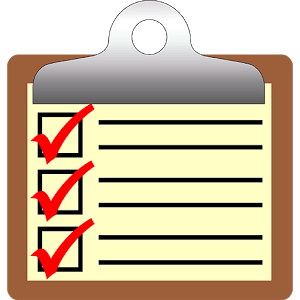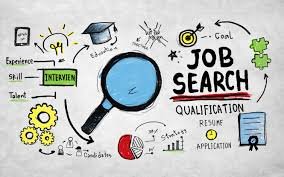In an earlier article, Answering Interview Questions 1 (you can read the article here), I wrote about interview candidates only needing to prepare answers to a few core questions which stem from four concerns of hiring managers. That article then explored how to respond to two questions – one which frequently starts off an interview (Tell me about yourself) and the other that frequently is one of the last asked (What are your salary expectations?). Here I explore other questions that an interview candidate must prepare for and suggest how to do this.
Focused, Competency-based Questions
As the hiring manager needs to establish during the interview whether a candidate can actually do the job, you can expect to be asked specific questions about how you meet the key requirements for the job. Hopefully your resume was focused on this specific job and therefore listed your skills relevant to the job. If so, the interviewer will ask you about them and these questions usually come in a particular format.
The format for asking about your skills is based on behavioural or competency-based interviewing techniques. The thinking behind this technique is that past behaviour is a good predictor of future performance. Therefore, for each skill that is a key requirement for the job (and for all the skills you list in your resume), you should prepare an answer to this question: “Can you give me an example of a time you did XXX?” (Replace XXX with the relevant skill, job task, or responsibility). Another popular way of asking this questions is: “Tell me about a time you did XXX”.
The interviewer is looking for specifics and detail, and if you cannot provide a credible example, you are deemed not to possess that skill. It is difficult to bluff in answering these questions as the interviewer usually asks deeper, related questions to understand the situation better. Such follow-on questions include “How many people were involved and what were their responsibilities?” Or “How exactly did you go about planning this?” “How did you monitor and track progress?” So your answers need to be based on a real example.
The way to answer competency-based questions is to use CAR stories. C-A-R stands for Context, Action and Results (another form of this is STAR stories – Situation, Task, Action and Results). You explain the Context of your example in terms of how the situation came about and any other background details. You then explain the Action you took or the action your team took but describe your involvement. Finally, you discuss the result or results taking this action led to. If the result involved anything quantifiable such as cost savings or increased sales, quantify the results in monitory (dollars $) or percentage (%) terms.
In addition to credibly demonstrating that you possess the skill being discussed, using C-A-R stories adds impact to your interview performance. Everybody loves stories and pays attention to them, so relating your answer in this format makes you memorable.
Questions relating to your Strengths
A sure to be asked core question stemming from the hiring manager’s four concerns relates to those about your strengths and can you do the job. You can be asked about this usually in one of four ways:
What are your strengths? OR
Why should we hire you over other qualified candidates? OR
What would you say are the main things needed to do this job well? Can you do those things? OR
Why should we hire you?
Whichever way the question is asked, you should approach answering it in the same way. Start by stating that you more than meet the three or four top requirements for the job (these are a mix of skills, qualifications and experience) and give examples of when you used them (use C-A-R stories). Then talk about any skills, education and experiences that make you unique – things other candidates probably don’t have or don’t have in the specific combination of them that you have. Throughout your answer, remain aware that you are trying to show that you meet the key requirements of your job target.
What about Weaknesses?
Unfortunately many interviewers still ask this rather pointless question. No candidate in their right mind is going to sacrifice themselves by discussing a weakness that might mean not being offered the job, and other answers are probably not relevant to the position anyway! Trained interviewers are told to avoid such unproductive questions.
If asked, the way to address this question is to mention one or two shortcomings that are not very important to the job, but to discuss them in a way that shows you are self-aware and that you are doing something to overcome the weakness. You could make the answer even stronger by giving an example of a time you overcame the weakness, and effectively make it sound like a strength!
What are your career goals?
Interviewers ask this question to see if you know where you want to go with your career or are drifting through it. Your answer will also give them an idea whether you will stay short-term or longer with their company, and also whether you have done some research on them. If you sound too short-term or drifting, they may not offer you the job if they have another candidate who knows why they want the job and where it fits into their career plan.
The way to approach this question is to convey that you want to work in companies that match your personal and career goals, and align with your work values – linking this to their company will really prove to be a strong answer and have them already viewing you as “one of them”! So firstly talk about the job responsibilities you want to have a few years down the road in broad terms. Then talk about the type of company and people you want to work with (if you really want the job make it sound that this is them!) and explain how and why the company is a good fit for your goals. This will demonstrate that you have done your homework and researched the company, its people and its culture. It further indicates that, since you know a lot about the company and believe it to be a good ‘fit’ with your goals and values, you will stay more than just short-term.
What did you like most / least about your last position?
In some ways your preparation for the previous question is relevant to this one too. The approach should be to link your answer to the requirements of the job target and not to talk about a list of negatives about your previous company or boss – if you talk about your previous company negatively, it might be assumed that you would do so about the target company too.
Instead talk about how you liked most aspects of the previous job and company, but that you would have liked more of “X” in that position. Here “X” should relate to one of the responsibilities of the new position. You could also mention that you are looking for a new challenge or a role with more of a regional focus (but only if the new role requires this). You could also talk about wanting to work in a company with a more “Y” environment or culture – where “Y” relates to something that exists in the new company. Answering in this way puts a positive spin on your answer by making it sound that you are attracted to the role and company rather than just trying to get away from something you dislike about your current or previous role.
Why do you want to work here and what do you know about our company?
This question too is related to the previous two questions and seeks to establish if you are an ‘informed’ or ‘uninformed’ candidate. An ‘informed’ candidate will have researched the company sufficiently to answer this question competently because they will be able to talk knowledgeably and meaningfully about the company and how it ‘fits’ with their personal goals and values. Hiring managers strongly dislike ‘uninformed’ candidates and in surveys report that they won’t hire them even if they meet all other requirements for the job!
You can read more about this in our article “How to Be an Ideal Candidate for the Job” here.
So you don’t have to prepare separately for hundreds of possible interview questions as this article and particular Answering Interview Questions 1 demonstrates.









